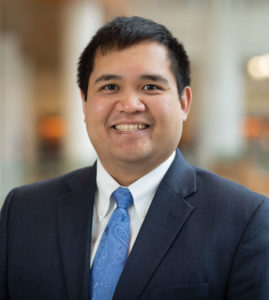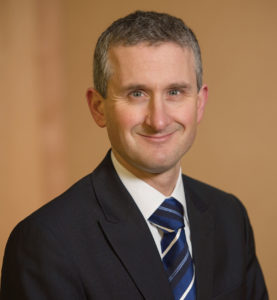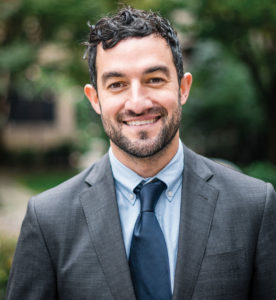APSF support of patient safety research has been long guided by the Foundation’s Vision Statement that “no patient shall be harmed by anesthesia” and the Mission Statement that includes the goal “to improve continually the safety of patients during anesthesia care by encouraging and conducting safety research and education.” The APSF has provided over nine million dollars for patient safety research since 1987 in an effort to achieve these goals.
The 2018-19 APSF investigator-initiated research grant program received 29 letters of intent (LOIs) that were submitted in early February 2018. After thorough evaluation, six teams were asked to submit full proposals. On October 13, 2018, the Scientific Evaluation Committee met during the Annual ASA Meeting to make funding recommendations to the APSF Board of Directors. Three recommendations were made and were voted upon favorably.
The principal investigators of this year’s APSF grants provided the following description of their proposed work.
Arnoley S. Abcejo, MD
Assistant Professor of Anesthesiology and Perioperative Medicine
Mayo Clinic Rochester
Dr. Abcejo’s Clinical Research submission is entitled “Neurocognitive Dysfunction after Anesthesia in Patients with Recent Concussion.”
Background: Concussion represents the functional manifestation of traumatic brain injury. This neurologic condition impacts millions of Americans each year—affecting all age groups, genders, and demographic backgrounds. Though most often associated with sports-related injuries and motor vehicle accidents, the most common reason for a concussion is falls. Despite the mechanism, the acute phase after concussive injury results in a myriad of otherwise nonspecific neurologic and cognitive symptoms, i.e., headache, confusion, emotional lability, nausea, memory loss, etc. Despite the resolution of concussive symptoms, however, clinical evidence reveals aberrations in neurophysiologic homeostasis that may persist for days to weeks longer. These changes include cerebral dysautoregulation, changes in cerebral blow flow, and interruptions in cerebral metabolism, blood brain barrier mechanics, and neuronal transmission.
The concept of a “vulnerable brain” in the perioperative period is being investigated in a variety of patient cohorts including children, in those with pre-existing brain injury (i.e., prior stroke, traumatic injury), and in elderly adults. The pathophysiologic changes associated with concussion may result in a “vulnerable brain” state where further insult could uncover, exacerbate, or prolong its symptoms and their sequelae. Exposure to anesthesia and the perioperative setting may pose a significant patient safety risk after concussion. Our group has retrospectively shown that anesthesia after concussion is not uncommon and that many patients with concussion require anesthesia within a month of the concussive injury.1
Aims: The overall goal of this project is to determine if the vulnerable brain following concussion is functionally impacted by anesthesia and surgery. To accomplish this goal, a prospective cohort study design will be used to: (1) test the hypothesis that patients with recent concussion experience a greater degree of neurocognitive dysfunction after anesthesia compared to matched patients without concussion and (2) characterize the nature and severity of cognitive deficits that may be associated with anesthesia and surgery in patients with acute concussion. We also want to understand the feasibility of prospectively studying patients with concussion and performance of neurocognitive testing.
Implications: This important work addresses several priorities set forth by the APSF. First, given the worldwide burden of traumatic brain injury, establishing a relationship, or lack thereof, between neurocognitive dysfunction and anesthesia after concussion may provide anesthesia professionals with information to assess their patient’s perioperative risk. It may also promote research into optimizing patient care related to safe time intervals between the concussion event and exposure to anesthesia. Second, this pilot work may identify opportunities for promoting brain health initiatives. Specifically, this work may identify neurocognitive testing strategies that can be used in future studies and outline a research strategy for establishing best-practice guidelines and safety standards for anesthesia administration following recent concussion.
Funding: $150,000 (January 1, 2019–December 31, 2020). This grant was designated the APSF/ASA Endowed Research Award. Dr. Abcejo is also the recipient of the Ellison C. “Jeep” Pierce, Jr., MD, Merit Award, which provides an additional, unrestricted amount of $5,000.
Reference
- Abcejo AS, Savica R, Lanier WL, Pasternak JL. Exposure to surgery and anesthesia after concussion due to mild traumatic brain injury. Mayo Clinic Proc. 2017; 92: 1042–1052.
J. Matthias Walz, MD
Professor of Anesthesiology, Surgery, and Perioperative Medicine
University of Massachusetts Medical School
Dr. Walz’s Clinical Research submission is entitled “Older Adult Safety in Surgery (OASIS): Can a preoperative walking prescription bolstered by pedometer and remote physical therapist coaching improve stamina and mobility in frail older adult surgical patients?”
Background: Frail older surgical patients face more than a two-fold increase in postoperative patient safety events, including myocardial infarction, deep vein thrombosis, pulmonary embolism, pneumonia, ileus, and others compared with non-frail older adults. Many of these adverse events result from postoperative loss of stamina and poor mobility.1 Preoperative exercise interventions (i.e., prehabilitation) may better prepare these vulnerable patients for surgery, but there are very few existing studies. The interventions published in the literature thus far fall short of meeting the needs of frail older adults because they include multiple clinic visits which add to the stress of these patients who have multiple other presurgical appointments. Moreover, these interventions provide general walking advice, but not goal setting with modern Fitbit-like pedometers or remote coaching by a physical therapist (PT), both of which have been effective in other settings.2,3
Aim: The primary objective of this randomized, controlled study is to compare walking with a modern pedometer guided by remote PT coaching versus preoperative general walking advice on postoperative stamina and mobility in frail older adults undergoing colectomy or other intestinal surgery.
Implications: Given the prevalence and elevated risk of postoperative patient safety events in frail older adults, preoperative walking with a modern pedometer and remote PT could have significant positive impact on postoperative health and reduce burden on the health care system. Although we focus on colectomy and intestinal surgeries in this proposal, we believe the same benefits are likely to hold true for a broader population. The number of patients who would potentially benefit from this intervention is likely to be high, and the dividends in terms of averted complications and associated reduction in cost from postoperative utilization is substantial.
Funding: $144,185 (January 1, 2019–December 31, 2020). This grant was designated the APSF/Medtronic Research Award.
References
- Carli F, Scheede-Bergdahl C. Prehabilitation to enhance perioperative care. Anesthesiology Clinics. 2015;33:17–33.
- Bravata DM. Using pedometers to increase physical activity and improve health: a systematic review. JAMA. 2007;298:
2296–2304. - Fitzgerald GK, White DK. Associations for change in physical and psychological factors and treatment response following exercise in knee osteoarthritis: an exploratory study. Arthritis Care & Research. 2012;64:1673–1680.
Nicholas J. Davis, MD
Assistant Professor of Anesthesiology
Columbia University
Dr. Davis’s Clinical Research submission is entitled “Ultrasound evaluation of gastric emptying time in neonates and infants.”
Background: Preoperative fasting guidelines for all age groups (Practice Guidelines for Preoperative Fasting, updated 2016) have been developed by the American Society of Anesthesiologists to help mitigate the risk of pulmonary aspiration, an infrequent but potentially devastating complication during anesthesia.1 These recommendations, particularly in the pediatric population, are supported by very limited evidence. NPO guidelines in very young children are six hours for formula feeding and the fasting interval far exceeds the feeding intervals infants normally experience (3–4 hours).1 Thus, when NPO durations are excessively long, there are real risks of dehydration and possibly hypoglycemia, in addition to being a source of parental dissatisfaction and cause of irritability in young patients. The purpose of this study will be to elucidate gastric emptying times in healthy newborns and infants to support the development of rational fasting guidelines, which would optimize patient safety and well-being, as well as parental satisfaction.
Aims: This study will attempt to determine gastric emptying times in newborns, and infants of ages 3–6 months and 9–12 months, using serial ultrasound assessments of gastric antral volumes. We will test the hypothesis that gastric emptying times after formula feeding are less than the recommended six hours in neonates and young infants.
Implications: If the results document that gastric emptying times are less than six hours for formula-fed newborns and infants, then revisions to NPO guidelines for pediatric patients can be supported. Abbreviating the fasting times in these young children will improve patient and family satisfaction while maintaining patient safety.
Funding: $149,993 (January 1, 2019–December 31, 2020). This grant was designated the APSF/ASA Presidents Research Award.
Reference
- An Updated Report by the American Society of Anesthesiologists Task Force on Preoperative Fasting and the Use of Pharmacologic Agents to Reduce the Risk of Pulmonary Aspiration. Practice guidelines for preoperative fasting and the use of pharmacologic agents to reduce the risk of pulmonary aspiration: application to healthy patients undergoing elective procedures. Anesthesiology. 2017; 126:376-93.
Dr. Howard is a staff anesthesiologist at the VA Palo Alto Health Care System and he is professor of anesthesiology, perioperative and pain medicine at Stanford University School of Medicine. Dr. Howard also serves as current chair of the APSF Scientific Evaluation Committee
Dr. Howard serves on the Board of Directors of the APSF and has no other conflicts of interest to declare.


 Issue PDF
Issue PDF

